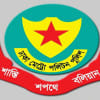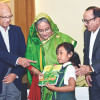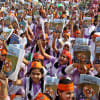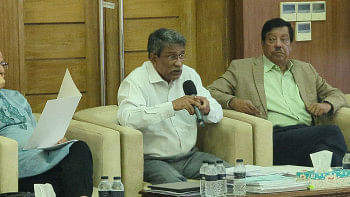Free textbook distribution: Race against the clock for govt

The government is racing against time to print the textbooks for free distribution among primary and secondary school students on January 1, 2025 – the first day of the upcoming academic year.
According to officials from the National Curriculum and Textbook Board (NCTB) and members of the printing industry, the printing process just began on Saturday, while the textbook revisions for all grades remain incomplete.
In previous years, nearly 50 percent of the textbooks would typically have been printed by this time. However, the delay this year casts a doubt over the timely printing of over 40 crore copies of textbooks for over four crore students by the end of this year.
Since 2010, the government has been distributing free textbooks for primary and secondary students at the start of each academic session.
According to NCTB officials, a major reason for this delay is the current political situation, which began with the quota reform movement in early July resulting in the fall Sheikh Hasina on August 5.
They, however, expressed optimism, saying it may still be possible to deliver the textbooks on time with full cooperation from the printing sector and other stakeholders.
Prof Riad Choudhury, member (textbook) of NCTB, said, "We've nearly completed the textbook revisions, and the manuscripts for classes one to three have been sent to the press [for printing]. The remaining books will follow soon."
About distribution concerns, he said, "Unavoidable circumstances in July and August have posed these challenges. But we're holding regular meetings with the stakeholders to ensure timely distribution."
Distributing the books on time was a challenge for the previous Awami League government for the past three years as well.
It had failed to deliver over three crore textbooks for classes eight and nine this academic year and in 2022 and 2023; students had to wait till March for all their textbooks.
In 2021, the pandemic had caused a delay in the textbook distribution process.
The newly appointed interim government has decided to revert to the 2012 curriculum instead of continuing with the one introduced in 2022.
It has also decided to remove "exaggerated" historical information or "unnecessary" glorification of any individual in textbooks for the upcoming academic year.
Last year, the government had to print around 31 crore textbooks for the current academic year. However, because of changes in the curriculum, the number of books increased to 40 crores for 2025.
The Printing Industry Association said that completing all printing by the end of this year is "virtually impossible". It has urged the NCTB to expedite manuscript finalisation and consider relaxing tender conditions to speed up the printing process.
Tofael Khan, president of the Bangladesh Textbook Printing and Marketing Association, said, "NCTB should have a structured plan to ensure timely textbook distribution, but it appears they have fallen short. Given the current situation, delivering all books on the first day of the academic year doesn't seem possible."
He said the NCTB is still revising textbooks under the older curriculum and is yet to issue tenders for classes eight, nine and 10. "However, even if the tenders are issued soon, multiple steps are required before printing can begin."
Tofael further said that this time the NCTB is committed to using higher-quality paper for the textbooks, which has been a long-standing demand from stakeholders. However, the supply of that paper might be short if all work orders are issued simultaneously, as guidebook publishers typically print during the same period.
He also said there was a lack of coordination within the NCTB, adding that while the new top admin appears committed, they lack experience, and support from lower-ranking officials is inconsistent. "Without better coordination, the NCTB could face further challenges."
NCTB Chairman Prof AKM Reazul Hassan acknowledged the challenges. "Yes, there are hurdles as we are newly appointed in the body, but we're still hopeful of completing the printing within this year."
He said the board is considering relaxing some conditions for smaller printing firms and adding them in the process to speed up printing works.

 For all latest news, follow The Daily Star's Google News channel.
For all latest news, follow The Daily Star's Google News channel. 








Comments